AI in HR: Navigating the New Frontier of Talent Management
July 29, 2024
|
Matthew Call, PhD.
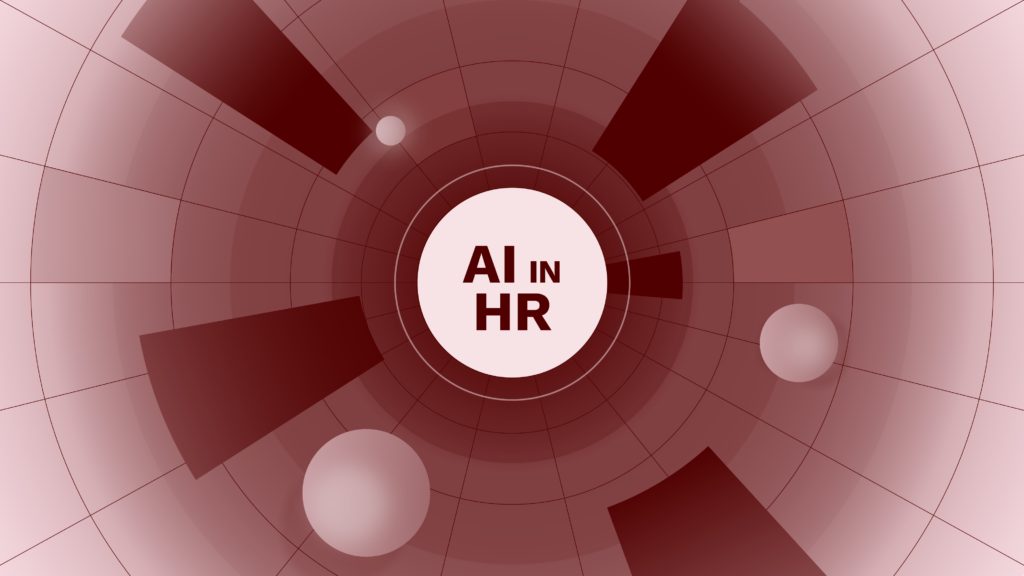
As artificial intelligence (AI) rapidly infiltrates the realm of human resources (HR), organizations find themselves at a critical juncture. The promise of enhanced efficiency and data-driven decision-making is tempered by the uncertainty and apprehension surrounding AI’s impact on the workforce. HR professionals are now tasked with the formidable challenge of harnessing the power of AI while deftly navigating the ethical and practical considerations that come with its adoption.
Our recent benchmarking study on AI in HR sheds light on the current state of AI adoption, its effectiveness across various HR functions, and the challenges organizations face in managing this transformative technology. The results paint a picture of a landscape that is both exciting and daunting, with clear opportunities for growth and innovation, as well as significant hurdles to overcome.
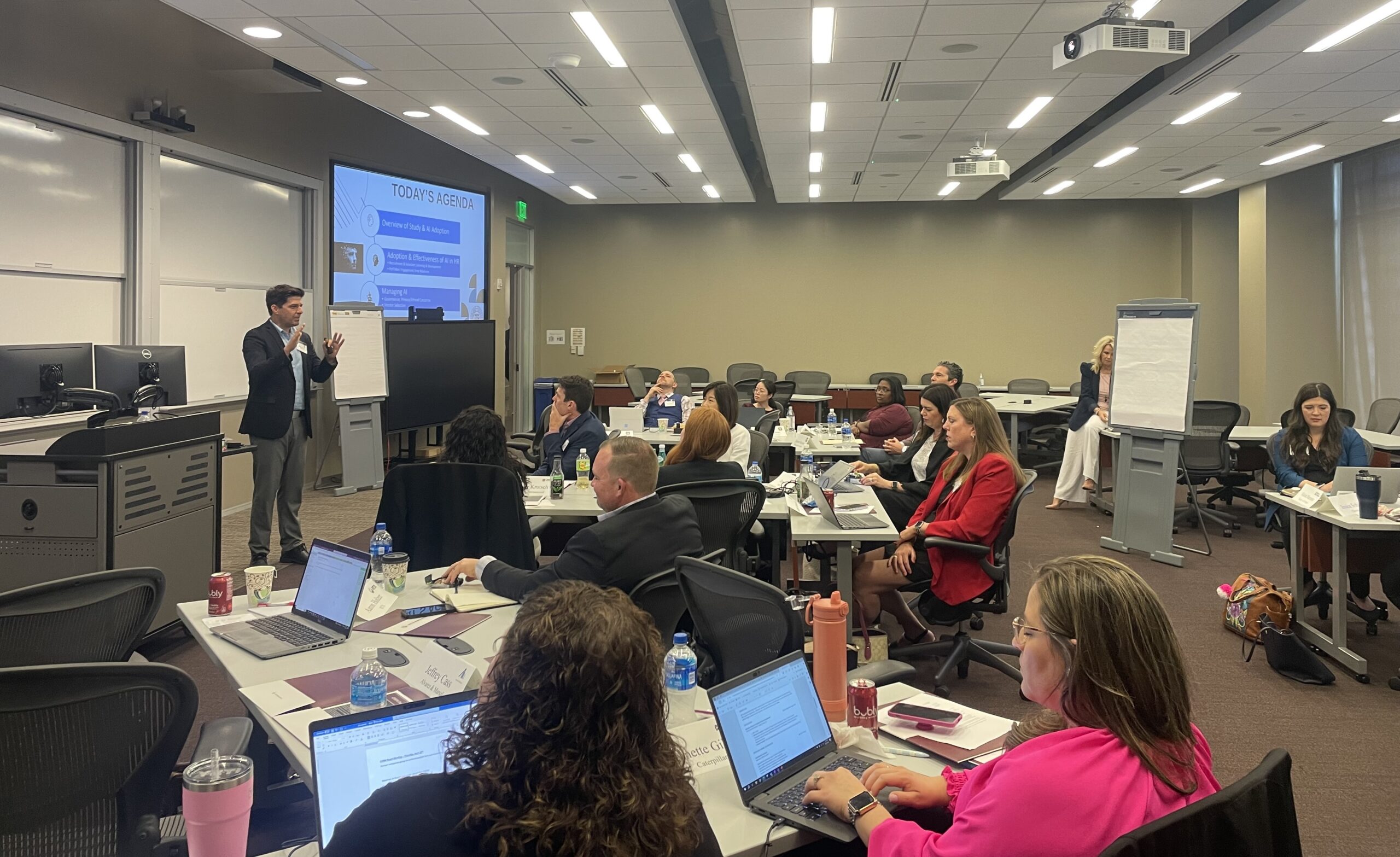
Study Methodology
The study began with a focus group consisting of HR professionals from RTX, Shell, Dell Technologies, and PepsiCo. A survey was then conducted among 111 representative firms when one or more respondents (SVP HR, CHRO, or Key Informants on AI in HR) answered a series of questions about AI adoption across a variety of HR functions. Respondents had an average age of 51, mean experience of 23.5 years, and were from companies with over 1,000 employees. The sample represented various industries and levels of AI adoption within their organizations.
AI Adoption and Effectiveness: A Mixed Bag
Our survey revealed that more than half of the companies (57%) are not currently using any AI technology in their HR processes. This finding underscores the nascent stage of AI adoption in HR and the vast untapped potential that lies ahead. However, among the companies that have embraced AI, the results are mostly promising.
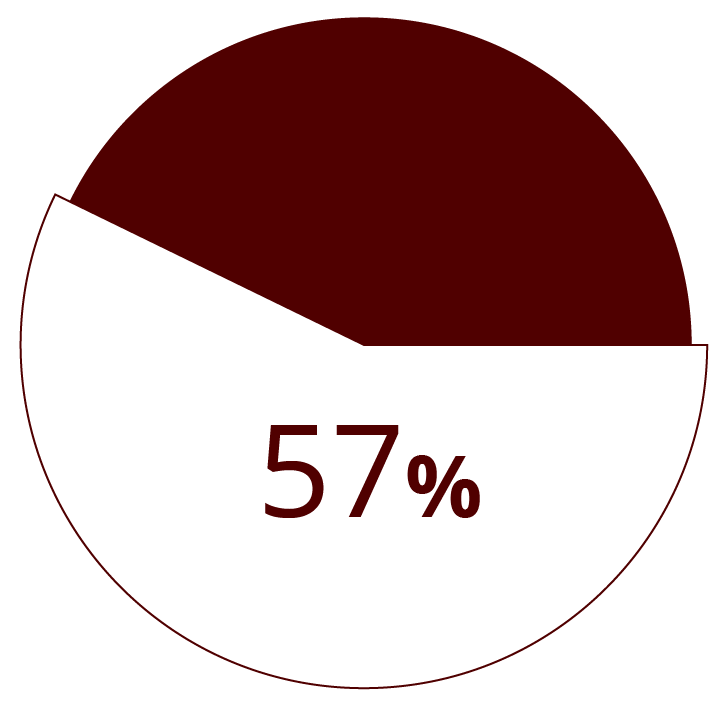
In the realm of recruitment and selection, AI has found its strongest foothold. A striking 73% of companies using AI have deployed it for sourcing talent, while 63% utilize it for screening applicants. The perceived effectiveness of AI in these areas is high, suggesting that AI is indeed delivering on its promise of streamlining and optimizing the talent sourcing and acquisition process.
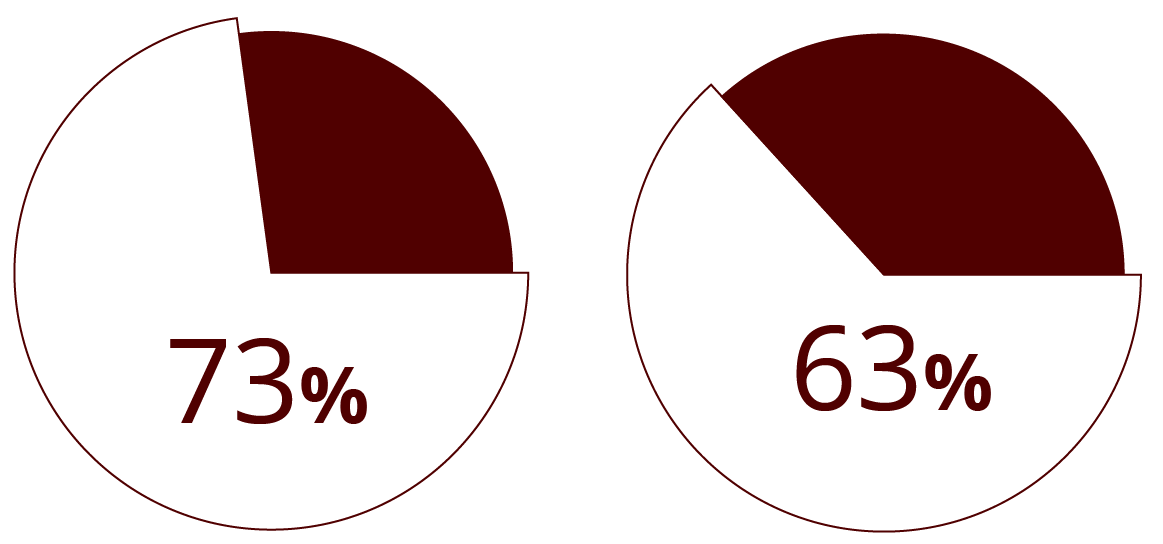
Learning and development is another area where AI is making significant inroads. Forty percent of surveyed companies are leveraging AI to facilitate learning, training and development, as well as to create training content. Interestingly, almost half of the companies surveyed are using AI to design employee onboarding, and the feedback has been overwhelmingly positive. In a recent Center for Human Resources board meeting, numerous employers shared their strides in advancing AI within talent development. Many are now embracing vendor solutions that offer sophisticated skills assessments and inventories. What’s more, some pioneering companies are harnessing AI capabilities to craft individual learning plans based on comprehensive skills data analysis.
Performance management, on the other hand, remains largely untouched by AI, with only 20% of companies in the early stages of adoption. However, those who have yet to embrace AI in this area uniformly recognize its potential to revolutionize the way performance is overseen and managed.
Managing AI: Governance, Ethics, and the Human Touch
As organizations wade deeper into the waters of AI, the question of governance looms large. Our study revealed a fragmented governance landscape, with IT (56%), HR (13%), security (2%), and other departments (36%) all playing a role in AI governance. Perhaps most concerning is the finding that 10% of respondents were “unsure” who was governing AI in their organization.
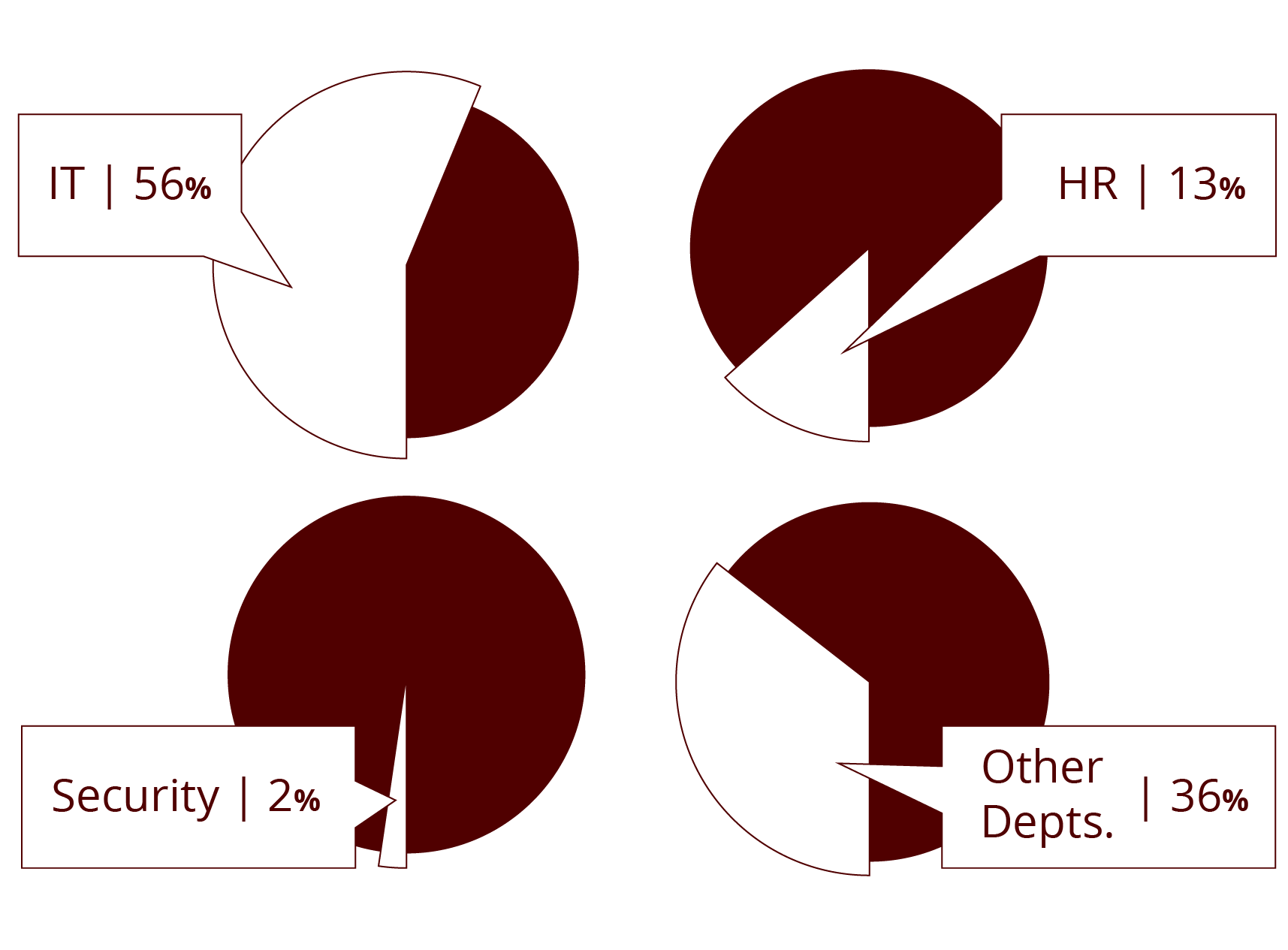
Respondents gave open remarks that highlight the evolving nature of AI governance: AI is governed by “AI COE, a newly created position”; “Our Digital Board, a cross-functional group of C-Suite and business execs lead by our CFO (who also is responsible for IT)”; and “Currently trying to decide”.
Privacy and ethics emerge as key concerns, particularly in the early stages of AI adoption. Specifically, companies in the early stages of AI adoption reported more privacy and ethical concerns, suggesting a learning curve as organizations grapple with the implications of AI. Transparency about AI adoption also tends to be lower initially, underscoring the need for open and honest communication with employees about how AI will shape the HR landscape.
As companies increasingly adopt AI technologies, it is crucial for them to communicate openly and honestly with their employees about the potential impact on their roles and the broader organization. Striking a balance between candor and optimism is key. On one hand, employees deserve transparency about how AI may change the nature of their work or even lead to some job displacements. Sugarcoating or avoiding these realities can breed mistrust and anxiety. At the same time, a purely dire message can be demoralizing and counterproductive. Companies should pair this candor with an optimistic vision for how AI will create new opportunities, drive innovation, and allow employees to focus on higher-value work.
By investing in reskilling, redeployment and support programs, organizations can demonstrate their commitment to their people even as the advent of AI brings unprecedented change. Ultimately, employees are more likely to embrace an AI-driven future if they understand the challenges, believe in the opportunities, and see that their company has a plan to help them navigate the transition.
The human-AI balance is another critical consideration. Our study found that as AI adoption grows, so too does the involvement of human input in the AI utilization process. The most successful organizations are learning to integrate AI and human expertise, leveraging AI as a workhorse for labor-intensive tasks while relying on employees to drive its strategic and ethical application. To ensure a smooth integration of AI, companies must invest in training and upskilling programs that enable employees to work effectively alongside AI. Fostering a culture of continuous learning and establishing clear guidelines for human oversight are crucial. By actively supporting the human-AI partnership, organizations can unlock its full potential while prioritizing employee well-being and success.
Conclusion:
The advent of AI in HR represents a frontier that is both exhilarating and daunting. As our benchmarking study reveals, organizations are at various stages of their AI journey, with some forging ahead and reaping the benefits, while others remain hesitant to take the leap. The effectiveness of AI across HR functions is evident, but so too are the challenges surrounding governance, ethics, and the human-AI balance.
For HR professionals, the path forward is clear: embrace the power of AI while never losing sight of the human element. By proactively addressing concerns, investing in employee education and upskilling, and fostering a culture of transparency and trust, organizations can harness the full potential of AI while mitigating its risks.
The future of HR is undoubtedly intertwined with AI, but it is a future that we have the power to shape. By approaching AI with a mix of enthusiasm and caution, by learning from the successes and missteps of others, and by always keeping the well-being of employees at the forefront, HR can navigate this new frontier with confidence and emerge stronger, more efficient, and more impactful than ever before.
About The Center for Human Resource Management (CHRM)
The Center for Human Resource Management was founded in 1992 with the goal of becoming a recognized center of excellence in HR education, research, and practice. Since then, we’ve developed a strong and reputable network of leading executives, faculty, and students who work together to create value for industries and the field. By combining scholars and industry professionals with our student body, we have succeeded in creating a system that is changing the way HR is taught and practiced.
The CHRM strives to be recognized globally as a center of excellence in HR education, research and practice. Our well-developed, powerful network of leading executives, faculty and students work together to create value for companies and the human resources field.
For more information, contact Ronald Chandler, Director, Center for Human Resource Management, rchandler@mays.tamu.edu.



